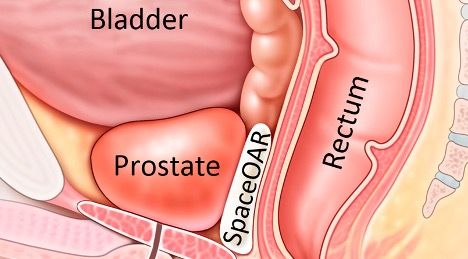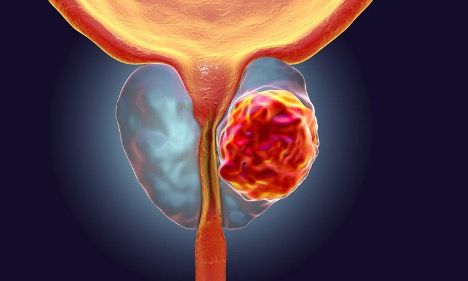Prostate cancer is the most commonly occurring cancer in men after skin cancer. Prostate is a gland in men which produces semen. Abnormal production of cells takes place in prostate leading to prostate cancer. In the early stages, prostate cancer may not cause serious harm but advanced stages can.
TYPES OF PROSTATE CANCER
Prostate cancer may be benign known as benign prostatic hyperplasia or it can be malignant. Benign growths do not involve associated organs and nearby tissue and are no threat to life. Whereas, malignant type can invade nearby tissues and affect associated organs like bladder, bones, blood and lymphatic system. It can sometimes re-occur after removal.
SYMPTOMS OF PROSTATE CANCER
There are almost no signs and symptoms associated with prostate cancer. However, advanced stages of prostate cancer may cause blood in urine or seminal fluid, trouble in urination, weight loss, pain in bones, and erectile dysfunction.
RISK FACTORS
Following risk factors are associated with prostate cancer:
1. Age
2. Race
3. Family history
4. Smoking
5. Diet
6. Obesity
QUIZ - TEST YOURSELF!








Prostate cancer is the most commonly occurring cancer in men after skin cancer. Prostate is a gland in men which produces semen. Abnormal production of cells takes place in prostate leading to prostate cancer. In the early stages, prostate cancer may not cause serious harm but advanced stages can.
TYPES OF PROSTATE CANCER
Prostate cancer may be benign known as benign prostatic hyperplasia or it can be malignant. Benign growths do not involve associated organs and nearby tissue and are no threat to life. Whereas, malignant type can invade nearby tissues and affect associated organs like bladder, bones, blood and lymphatic system. It can sometimes re-occur after removal.
SYMPTOMS OF PROSTATE CANCER
There are almost no signs and symptoms associated with prostate cancer. However, advanced stages of prostate cancer may cause blood in urine or seminal fluid, trouble in urination, weight loss, pain in bones, and erectile dysfunction.
RISK FACTORS
Following risk factors are associated with prostate cancer:
1. Age
2. Race
3. Family history
4. Smoking
5. Diet
6. Obesity
QUIZ - TEST YOURSELF!

